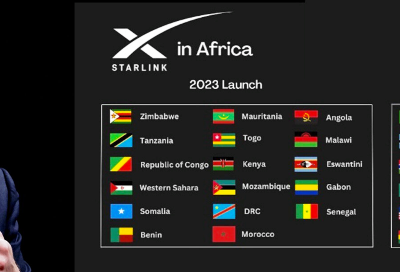 Matters eRising Blog
Matters eRising Blog
By SEGUN ORUAME
Not many people will be conversant with Nigeria’s small but somewhat
thriving local software industry. In this very green sector where
there is so much hope of re-building our national destiny outside of
the fiery oil curse, few indigenous players have made their mark and
are already FOREX earners for a country that would not appreciate
them.
Not many people will also realise that the trillion dollar global
software industry has not grown purely by superior marketing skill of
the foreign brands. The brands have equally grown by the sheer weight
of political willpower of governments of various countries not only to
export their local knowledge solutions but also to ensure the local
usage and patronage of such solutions. If you have doubts then check
how the US and European powers secretly use their embassies as foreign
sales outposts to market their home-made products. The Indian
government has invested so much political willpower to ensure the
acceptability of Infosys and other Indian software companies in
countries within and outside of Asia.
Nigeria is one of the prime destinations of Infosys solutions and so
many other offshore software companies. Billions of dollars are
exported every year as cost of deployment and payment for licensing
fees. The software industry is at once local and global and
increasingly for any solution provider to become relevant, it must be
local and global in terms of value proposition and certification.
Not all Nigerian software companies have attained this mark. But the
few that have attained this mark have done so with little or no
support from a government so ‘noisily’ patronising about the need to
promote non-oil exports. Increasingly, local software companies have
had to prove their own worth ten times over their foreign rivals on
their own local soil where they ought to enjoy some advantages. The
in-road few players such as Systemspec Limited and PFS Limited have
made within the public sector and the financial sector has been by
merit and brazen show of courage in an environment that rejects its
own.
Government wants to promote local content in the ICT industry. But it
appears to be befuddled by its own somewhat lack of vision and
commitment. That perhaps may explain the recent sad fate that has
happened to Systemspecs. After winning and successfully implementing a
World Bank led bid to deploy the Integrated Payroll and Personnel
Information System (IPPIS), an initiative of the Federal Government of
Nigeria executed in partnership with the World Bank which involved
just 16 Federal Ministries with a population of about 55,000 public
servants, the software company has been told it would get no place for
the second and main phase which involved the entire public service.
Both the World Bank, which is no longer part of the second phase, and
Systempecs are in shock. The criteria have changed to include the
Nigeria factor and consequently, the deal has been given to a foreign
software company. But it is not a Systemspecs loss but a Nigerian
tragedy. The software company in question has become iconic of the
Nigerian willpower to triumph in spite of the odds. Long before the
IPPIS, Systemspecs had spread its weight to other countries
particularly within the continent, Ghana and Equatorial Guinea
inclusive among others to firm up its brand as global.
The IPPIS was a winner for the Federal Government, the World Bank and
Systemspecs. Through the implementation of the Payroll and Personnel
Management software developed 100% in Nigeria by a Nigerian company,
the Nigerian government was able to save a whopping N12 billion. For
the World Bank, the Nigerian company its consultants settled for in
the international bid for the IPPIS project had proven its mark, had
not disappointed and was worthy of winning the next bid; for
Systemspecs, the global software industry could now reckon with a
Nigerian company; and for Nigeria, the chicken had come home to roost
via sheer merit. But the criteria would soon change in very
questionable circumstance to shock all the stakeholders.
What could have been the beginning of Systemspecs’ stronger grip
within the Nigerian public sector and a vista for the Nigerian
government to concretise its vision of promoting the growth of
indigenous software capacity has been blasted by less than acceptable
factors. The implications are deep and varied.
Why enriched a foreign company and another country at the expense of
your own company and your national interest? Why throw the entire
operation of the very sensitive public service to the software
scrutiny of foreign interest when there is a tested local solution
provider which has deplored the same solution within the same
environment? Why export hard currency when that money could improve
the destiny of many Nigerians inside a Nigerian company. Is there
something really wrong with the idea of a Nigeria can-do spirit? The
questions and implications are numerous.
Some years back, former CEO of Zenith Bank and one of the known
drivers of ICT in Nigeria, Mr. Jim Ovia had a not too pleasant
encounter with a former President of Nigeria, Chief Olisegun Obasanjo
inside the Aso Villa during the formal presentation of the Omatek
laptop to the Nigerian leader.
Ovia was present as one of the SME fund providers for Omatek
Computers. Ovia had mentioned at the gathering that he was at
Bangalore, the software capital of India and had seen a tree planted
by the Nigerian president when the president paid a courtesy visit to
Infosys, India’s leading software company and one of the biggest
players on the globe.
Characteristics of Chief Obasanjo, he had cut Mr. Ovia short and
castigated him for failing to fund indigenous software efforts. He
took a swipe at the banking industry blaming it for being part of the
causative factors for the dearth of thriving indigenous ICT
entrepreneurship. “You only need a red rug, a desk and some beautiful
ladies to set up a bank and collect peoples’ money”, said Chief
Obasanjo to Mr. Ovia. But “you need courage and vision to do what this
woman is doing. Madam I must commend you for this effort,” the chief
said while addressing Mrs. Florence Seriki, the CEO of Omatek
Computers Plc.
For Mr. Ovia, it was a challenge that cumulated into the efforts at
setting up a Software Park in Lagos. Chief Obasanjo’s message was
simple and clear. He had been to India and had seen how the expansive
growth of India’s indigenous software industry has made the world’s
second most populous country to lead in the global software industry
and to reinvent its national economy to become part of the New World
Economic Order.
If India could do it, then Nigeria could do it with sufficient
political willpower, support of the private banking sector to invest
in the Knowledge Industry and the goodwill of the public sector
through committed patronage of the solutions derivable from indigenous
software capacity.
Before his departure from power, Chief Obasanjo had demonstrated a
sense of vision in getting the local Nigeria ICT industry to have some
steam to bud and blossom. There was a deliberate policy thrust to
encourage and patronise genuine local ICT efforts. We owe ourselves
the duty to save ourselves. If there is anything President Goodluck
Jonathan must adopt from ex President Obasanjo it is a practical
approach to believing that Nigeria owes Nigerians the duty of growing
the local software industry. This much the former president revealed
while in power. He derided everyone including himself for failing to
grow an industry yearning for government support.
The more reason President Jonathan must ask that the proper thing be
done and NOW!.





























